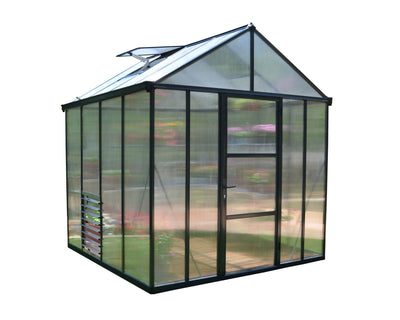What You Can and Can’t Put in Your Compost Bin
Composting is a powerful, natural way to recycle organic waste and improve your soil, but knowing exactly what to put in your compost bin, and what to avoid, is essential for success. In New Zealand, where our climate ranges from damp and mild to dry and hot, getting your compost mix right helps keep pests away, ensures fast decomposition, and produces a rich, crumbly compost that your garden will love.
The Basics: Greens vs Browns
At its core, composting is all about balance, specifically, the balance between nitrogen-rich “greens” and carbon-rich “browns.” Greens provide moisture and feed the microbes that break down organic material. Browns provide structure and airflow, helping to prevent odour and compaction.
Examples of Greens:
-
Vegetable and fruit scraps (banana peels, apple cores, citrus in moderation)
-
Coffee grounds and tea leaves (loose or in paper bags)
-
Crushed eggshells
-
Fresh grass clippings
-
Soft garden prunings
Examples of Browns:
-
Dry leaves and shredded twigs
-
Cardboard, toilet rolls, paper towels
-
Shredded newspaper (black-and-white only)
-
Straw, hay, and untreated sawdust
-
Dried corn husks or bean stalks
A good rule of thumb in NZ’s wet winters is to aim for two to three parts brown for every part green. This helps avoid sogginess and anaerobic conditions that stall decomposition.
What Should Stay Out of a Traditional Compost Bin?
Even though composting is a natural process, not all organic waste belongs in your bin. Certain materials are too slow to break down, attract pests, or introduce pathogens that could harm your garden.
Do not compost:
-
Meat, fish, bones (unless using a bokashi bin)
-
Dairy (cheese, milk, yoghurt)
-
Oils and greasy food
-
Cooked food with seasoning or sauces
-
Glossy paper or coloured cardboard
-
Synthetic tea bags or wipes
-
Pet waste (from dogs or cats)
-
Diseased plants or weed seeds
-
Sawdust from MDF or treated timber
These items create more problems than they solve. If in doubt, leave it out, or look at a specialised system like bokashi or worm farming.
Commonly Questioned Items
Citrus and onions: Small amounts are fine, but their acidity can disrupt compost microbes and worms. Best added in moderation.
Eggshells: These don’t break down completely but add valuable calcium. Crush them well to help incorporate them into the mix.
Paper products: Plain, uncoated paper towels and toilet rolls are great browns. Avoid glossy coatings, waxed paper, or anything with heavy inks or plastic liners.
Alternative Systems: Bokashi and Worm Farms
If your household produces a lot of cooked food, meat scraps, or dairy, a bokashi system may be better suited. Bokashi uses a fermentation process to pre-digest food waste inside an airtight container, which is then buried or added to a traditional bin. For soft, plant-based scraps like fruit and veg peelings, coffee grounds, and shredded paper, a worm farm is a compact and efficient option that uses worms to quickly produce high-quality compost and liquid fertiliser.
Bokashi handles:
-
Meat and small bones
-
Dairy and bread
-
Citrus, onions, cooked leftovers
-
Pasta, rice, and sauces
Worm farms, on the other hand, work best with:
-
Fruit and veg scraps
-
Coffee grounds
-
Crushed eggshells
-
Soft greens
-
Shredded paper
Worms dislike acidic, spicy, or fatty food, so avoid citrus, onions, meat, and anything oily.
Final Tips for Composting Success
To maintain an active compost pile:
-
Turn it weekly to introduce oxygen.
-
Chop large scraps to speed breakdown.
-
Monitor moisture, it should feel like a wrung-out sponge.
-
Add browns every time you add greens.
By following these tips and understanding what to compost (and what not to), you’ll end up with a clean, healthy pile that produces high-quality compost for your garden.
Looking to get started? Browse our selection of compost bins designed for NZ households of all sizes.
















